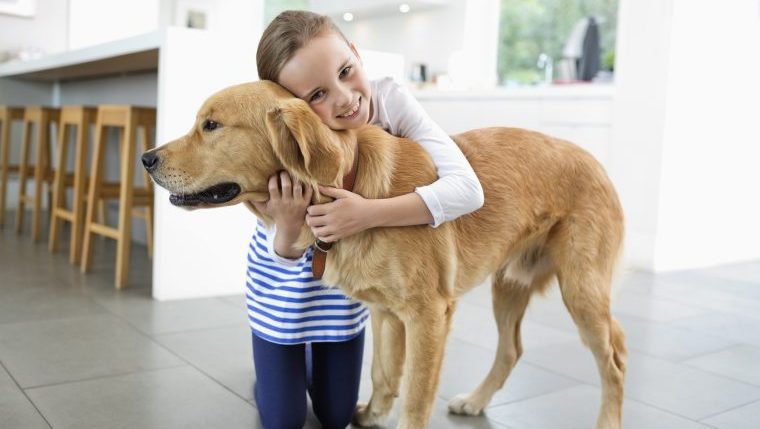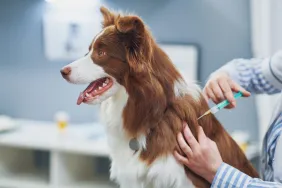
According to a recent study published by PLOS One, pet exposure during fetal development or infancy may prevent food allergies in children. The Japan Environment and Children’s Study indicates early age pet exposure may be effective at preventing allergies.
Owning pet dogs or cats may decrease risk for food allergies
CNN shared details from the peer-reviewed medical journal. The study’s hypothesis suggests owning pets during a child’s infancy in utero may decrease the risk for increased reactions to food allergens. Researchers analyzed data from 97,413 mothers and children from Japan. Evidence from the cohort study suggests that children exposed to indoor cats and dogs had a lower risk of food allergies. Their risk was 13% to 16% lower than children from pet-free homes.
While the cause for this decrease remains unknown, researchers determined exposure to dogs or cats during fetal development and early infancy could reduce the incidence risk of certain food allergies until the age of three. Scientists believe exposure to pets causes changes in the microbiota, or the living microorganisms in a particular environment. Early exposure to these microorganisms can allow for greater immune function.
Exposure to dogs, for example, was estimated to reduce the incidence risk of egg, milk, and nut allergies. Similarly, cat exposure may reduce the incidence risk of egg, soybean, and what allergies. Hamster exposure, however, could potentially increase the risk of nut allergy. Nuts in the hamster’s diet may overly sensitize infants.
Pet exposure early in development may boost immunity
Dr. Jonathan Bernstein, president of the American Academy of Allergy, Asthma, and Immunology, said exposure to dirt or dust from pets could help with immunity. Although he is not affiliated with this particular study, Bernstein said early exposure in fetal and childhood development is vital.
“If you’re thinking about having an animal and you’re concerned because you have allergies…there may be an added benefit to having a (pet),” Bernstein said. “It could be potentially protective if there’s an early life exposure.”
“Our findings suggest that exposure to dogs and cats might be beneficial against the development of certain food allergies,” the study’s authors concluded.
Another study from 2018 resulted in a comparable conclusion. Similarly, the research suggested a link between early pet-keeping and a lowered risk for allergies.
“It is critical to have these exposures early on as the immune system is developing, as the gut is developing,” Bernstein said. “It does seem to be an important route for sensitization.”
Experts hope these results encourage further research. Additionally, the study’s findings may alleviate worry about owning pets during pregnancy or early in a child’s life.









